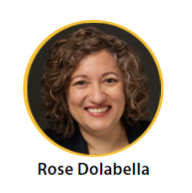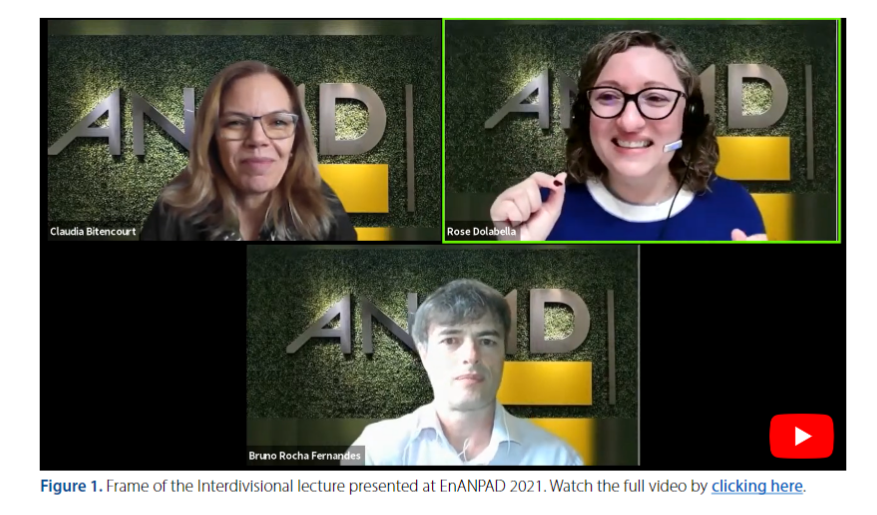 Never in our lives have we heard so much about Equity, Diversity, and Inclusionnlike in today’s world. We are advancing a lot in this area; not only organizations are highly focused on building diverse teams, but individuals are also more passionate about embracing people’s differences and uniqueness everywhere they go. This is not a trend; this is the new way of doing business and a great way for all of us to work and live together. My motto is “Inclusion makes us stronger.”
Never in our lives have we heard so much about Equity, Diversity, and Inclusionnlike in today’s world. We are advancing a lot in this area; not only organizations are highly focused on building diverse teams, but individuals are also more passionate about embracing people’s differences and uniqueness everywhere they go. This is not a trend; this is the new way of doing business and a great way for all of us to work and live together. My motto is “Inclusion makes us stronger.”
It was a privilege to give a talk at the 45th ANPAD Annual Meeting EnANPAD 2021, held online from October 4th through 8th, 2021, sharing na international perspective on the topic. It was gratifying to see that ANPAD brought such a current topic to be discussed with their participants, connecting so well what is happening in the world with the academia, reflecting on how educators can bring about the Equity, Diversity,and Inclusion discussion in business. In this open forum, I could share how inclusive practices can be implemented in organizations and advance on a mature diversity model, regardless of their sizes. The delegates brought a rich discussion, where we saw similar challenges in Brazil and Canada, as well as opportunities for collaboration through various channels, including the ANPAD Annual Meeting.
Many organizations are advancing in their approach to Diversity and Inclusion, going above and beyond quotas, compliance, and training requirements. They are looking at their internal diversity dashboards and analyzing the positive impact and outcomes resulting from the composition of various elements that defines their workforce, such as races, culture, gender, ethnicity, and abilities, just to list a few. These organizations understand that if they have diversity of thought, they will be more Words from Abrod creative and agile, they will develop products and services designed with inclusive lenses; therefore, they will outreach a broader range of clients and businesses. Years ago, organizations were very focused on Corporate Social Responsibility (now called “Corporate Citizenship”), to be socially accountable to the society and to the environment via philanthropy and volunteering opportunities. This has been a great way of increasing both employee morale and company branding. People would choose to work for organizations that were socially and environmentally responsible.
This approach has expanded from an external emphasis to incorporate an internal focus, where people are now increasing their expectations, by not only looking at how companies behave towards the environment, but also how organizations value their own workforce. Are organizations bringing disABILITIES to the table? Are organizations including women in business decisions? Are people of color been selected and heard? Are minorities been respected and considered based on what they bring to the business or based on how they look and behave? Are sexual orientation and gender identity barriers for hiring and promotion? Are people been disrespected because of their accent? These are all uncomfortable questions that are now been asked by employees. These historically hidden topics (racism, ageism, disability, homophobia, xenophobia,sexism, etc.), which are related to underrepresented and marginalized employee population, are now a top-of-mind priority for employees and leaders. If employees were previously valuing corporate social responsibility, they are now demanding for inclusion, and I would label this as Inclusive Corporate Citizenship.

Organizations must then embrace equity and inclusion. They ought to recognize that each person has different circumstances, and they should allocate the resources and opportunities needed for people to reach their full potential, implementing equity in the way of working. And equity challenges unfair systems and practices and works towards the creation of equitable outcomes. It is a win-win situation, where people feel respected and included, and organizations feel they are doing what is right. This, of course, increases employee engagement and organizational branding.
It is also important to consider that if employees have many layers which form who they are, and if all these layers are interconnected (intersectional approach), the same holds true to clients. Therefore, a strategic business approach should consider the diversity of their customers. Also, the organization’s workforce should reflect the community to which they belong, and by doing this, na organization will most likely have better business results.
Fortunately, the world is paying attention to equity, diversity, and inclusion. Society is waking up and giving voice to those who are underrepresented, overlooked by privileged people who never had to worry about their skin color, language, gender, physical or mental capacity. People are challenging the status quo, and social media has exponentially increased the world’s outreach. So, if organizations are not considering inclusion because this is the right thing to do, they should ask themselves what are the risks for their business if they choose to be the outsiders?
I hope that what I have shared with the ANPAD Annual Meeting attendees about my experience as a Diversity and Inclusion (D&I) practitioner in canada has shed some lights onto how to create inclusive actions in their own reality. Some of these ideas included D&I governance model, Employee Resource Groups, inclusive communications and hiring practices, Diversity dashboard, D&I tools and resources, D&I Learning Program, D&I Company Scorecard, allyship, and sponsorship. If I have positively impacted the audience towards a more inclusive culture, where each one of us have a role to play in our society towards inclusion, I will have achieved my motto!
Published by at 11/21/2022 at 09:41 PM